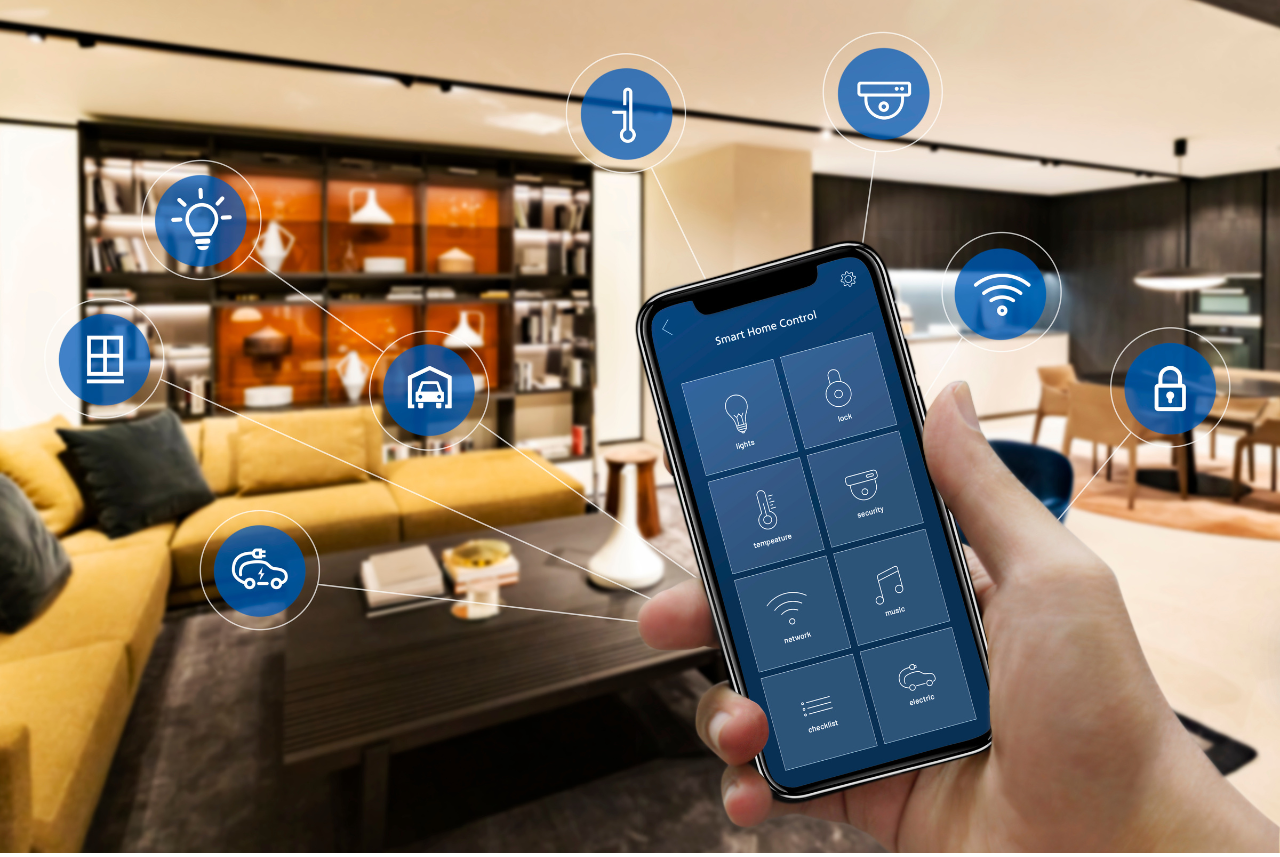
Smart homes of the future: Revolutionizing Living Spaces
Share
The concept of smart homes of the future is rapidly becoming a reality as technology continues to evolve and integrate seamlessly into our daily lives. As tech professionals and enthusiasts, we are at the forefront of witnessing this transformation. The integration of the Internet of Things (IoT) is set to revolutionize how we interact with our living spaces, making them more efficient, sustainable, and user-friendly.
Imagine a world where your home anticipates your needs, adjusts to your preferences, and enhances your overall quality of life. This is not a distant dream but a burgeoning reality fueled by advancements in technology. In this article, we will explore the key aspects of smart homes, the technologies driving them, and their impact on the future of living.

The Core of Smart Home Technology
At the heart of smart homes of the future lies IoT technology, which connects various devices and systems within a home to a central network. This connectivity allows for seamless communication and control, enabling homeowners to manage their environment with ease. From lighting and climate control to security and entertainment, every aspect of the home can be automated and controlled remotely.
One of the primary advantages of smart home technology is energy efficiency. By utilizing data and intelligent algorithms, smart homes can optimize energy consumption, reducing waste and lowering utility bills. For instance, smart thermostats learn user preferences and adjust heating and cooling settings accordingly, ensuring comfort while minimizing energy use.
Enhancing Security and Safety
Security is a significant concern for homeowners, and smart home technology offers innovative solutions to enhance safety. With the integration of smart security systems, homeowners can monitor their properties in real-time, receive alerts about unusual activity, and even control access remotely. This level of control provides peace of mind and an added layer of security.
Furthermore, the inclusion of sensors and detectors can prevent accidents and emergencies. For instance, smart smoke and carbon monoxide detectors can alert homeowners to potential dangers, while smart leak detectors can prevent water damage by alerting users to leaks before they become significant issues. For more insights into the benefits of leak detection, visit our article on Factory Pipe Leak Monitor.
Creating a Sustainable Living Environment
Sustainability is a growing concern, and smart homes of the future are poised to address this issue effectively. By integrating sustainable technologies, such as solar panels and energy-efficient appliances, smart homes can significantly reduce their carbon footprint. Additionally, the use of smart meters and energy management systems allows homeowners to monitor and control their energy consumption effectively.
For those interested in sustainable home automation, our blog on Best Practices for Sustainable Home Automation offers valuable insights into creating an eco-friendly living space.
Moreover, smart water management systems can conserve water by monitoring usage patterns and detecting leaks. By reducing water waste, smart homes contribute to environmental preservation and promote a sustainable lifestyle. Explore our discussion on the Future of Sustainable Home Automation for more information on this topic.
The Future of Smart Home Entertainment
Entertainment is another area where smart home technology is making a significant impact. With the rise of streaming services and smart TVs, homeowners can enjoy a personalized entertainment experience tailored to their preferences. Voice-controlled devices, such as smart speakers, allow for hands-free operation, making it easier than ever to access music, movies, and other media content.
Moreover, the integration of virtual and augmented reality technologies offers exciting possibilities for home entertainment. Imagine transforming your living room into a virtual theater or experiencing immersive gaming experiences within the comfort of your home. These innovations are just the beginning of what the future holds for smart home entertainment.
For additional ideas on enhancing your home entertainment setup, visit Home Automation Ideas to discover creative ways to elevate your entertainment experience.
Challenges and Considerations
While the benefits of smart homes of the future are undeniable, there are challenges and considerations that homeowners must address. Privacy and security concerns are at the forefront, as the increased connectivity of devices can potentially expose vulnerabilities. It is essential for homeowners to implement robust security measures to protect their data and privacy.
Additionally, the cost of implementing smart home technology can be a barrier for some homeowners. However, as technology continues to advance and become more affordable, the accessibility of smart home solutions is expected to improve. Stay informed about the latest trends in green home technology by reading our article on Latest Trends in Green Home Technology.
Conclusion
In conclusion, the concept of smart homes of the future holds immense potential to transform the way we live. By enhancing convenience, security, sustainability, and entertainment, smart homes offer a glimpse into a more connected and efficient future. As tech professionals and enthusiasts, it is crucial to stay informed about these advancements and explore the possibilities they present.
To learn more about sustainable living and the impact of smart home technology, visit Eco-Friendly Home Automation Products for further insights.

FAQ
What are the primary benefits of smart homes?
Smart homes offer numerous benefits, including increased energy efficiency, enhanced security, and improved convenience. They also provide a sustainable living environment by reducing energy and water consumption.
Are smart homes secure?
While smart homes offer advanced security features, they can also present privacy risks. It is essential to implement strong security measures, such as using encrypted networks and regularly updating device firmware, to protect against potential threats.
How can I start implementing smart home technology?
To begin implementing smart home technology, start by identifying your needs and priorities. Consider investing in smart devices such as thermostats, lighting, and security systems. Gradually expand your smart home setup as you become more comfortable with the technology.
